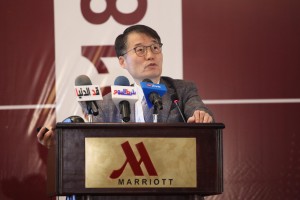Escaping the middle-income trap: lessons from East Asia’s experience
Many countries find themselves in the ‘middle-income trap’, facing a slowdown of economic growth because of weak innovation. This column draws on the experiences of East Asian countries to explore how businesses can upgrade their innovation capabilities and how policies can provide support for those efforts, thereby promoting renewed growth. There are important lessons for the MENA region.


